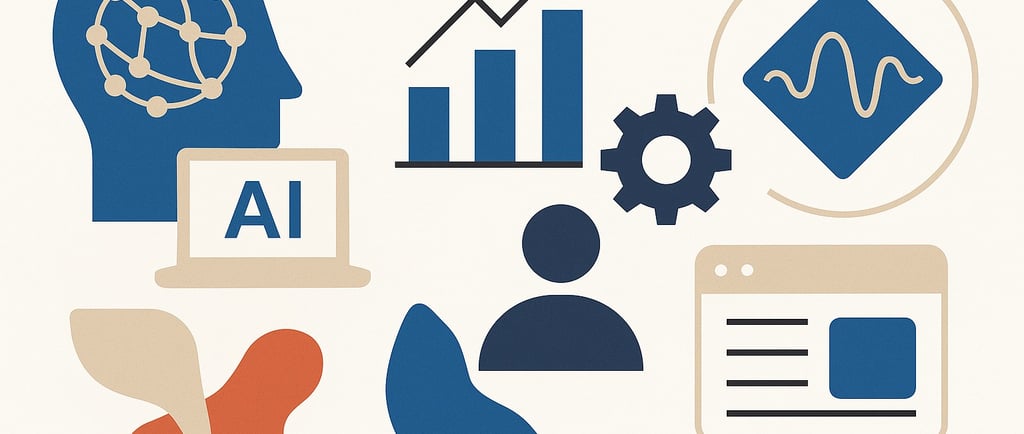AI Perspectives: Experts vs. Public Sentiment
A Pew Research Center survey reveals a stark contrast between AI experts and the general public regarding the future impact of AI. While experts are optimistic, the public expresses significant concern, particularly about job losses. Both groups, however, seek more control over AI and worry about inadequate government oversight.
USAGEFUTUREWORKHALLUCINATIONSTOOLS
The AI Maker
9/29/20252 min read


The divide between AI experts and the general public's perception of artificial intelligence is becoming increasingly evident. A recent Pew Research Center survey highlights a significant gap in optimism about AI's future impact over the next 20 years. While 56% of AI experts believe that AI will positively influence the U.S., only 17% of the general public shares this view.
This disparity can largely be attributed to differing expectations about AI's effect on critical areas such as employment, healthcare, and education. For instance, 73% of AI experts anticipate that AI will enhance job performance, yet only 23% of surveyed adults echo this sentiment. It seems that as AI tools, especially generative models like ChatGPT, continue to gain traction, the public's concerns about potential downsides are growing.
Interestingly, the survey also indicates a shared skepticism regarding job creation, with both groups fearing job losses in the coming years. Among experts, only 19% expect AI to create more jobs, while a staggering 64% of the public predict fewer jobs due to AI advancements. Cashiers and journalists are commonly viewed as the most vulnerable professions, though the potential impact on roles like truck drivers is debated.
As AI continues to permeate various sectors, the call for personal control and governmental oversight has emerged from both sides. The fear of unchecked AI capabilities is palpable, with concerns about misinformation, deepfakes, and the erosion of privacy weighing heavily on the minds of the public.
Despite the enthusiasm from experts, who often point to automation of mundane tasks and advancements in healthcare as bright spots, the general public remains more cautious. A recent CNET survey found that many smartphone users are less than thrilled about AI features in their devices, indicating a hesitance to fully embrace the technology.
As we navigate the complexities of AI's evolution, it's essential to foster open dialogue between experts and the public. Understanding each other's perspectives can help bridge the gap in perceptions and ultimately shape a future where AI is a beneficial tool rather than a source of anxiety. With the right balance of innovation and oversight, we might find common ground that benefits everyone.
Your Data, Your Insights
Unlock the power of your data effortlessly. Update it continuously. Automatically.
Answers
Sign up NOW
info at aimaker.com
© 2024. All rights reserved. Terms and Conditions | Privacy Policy
